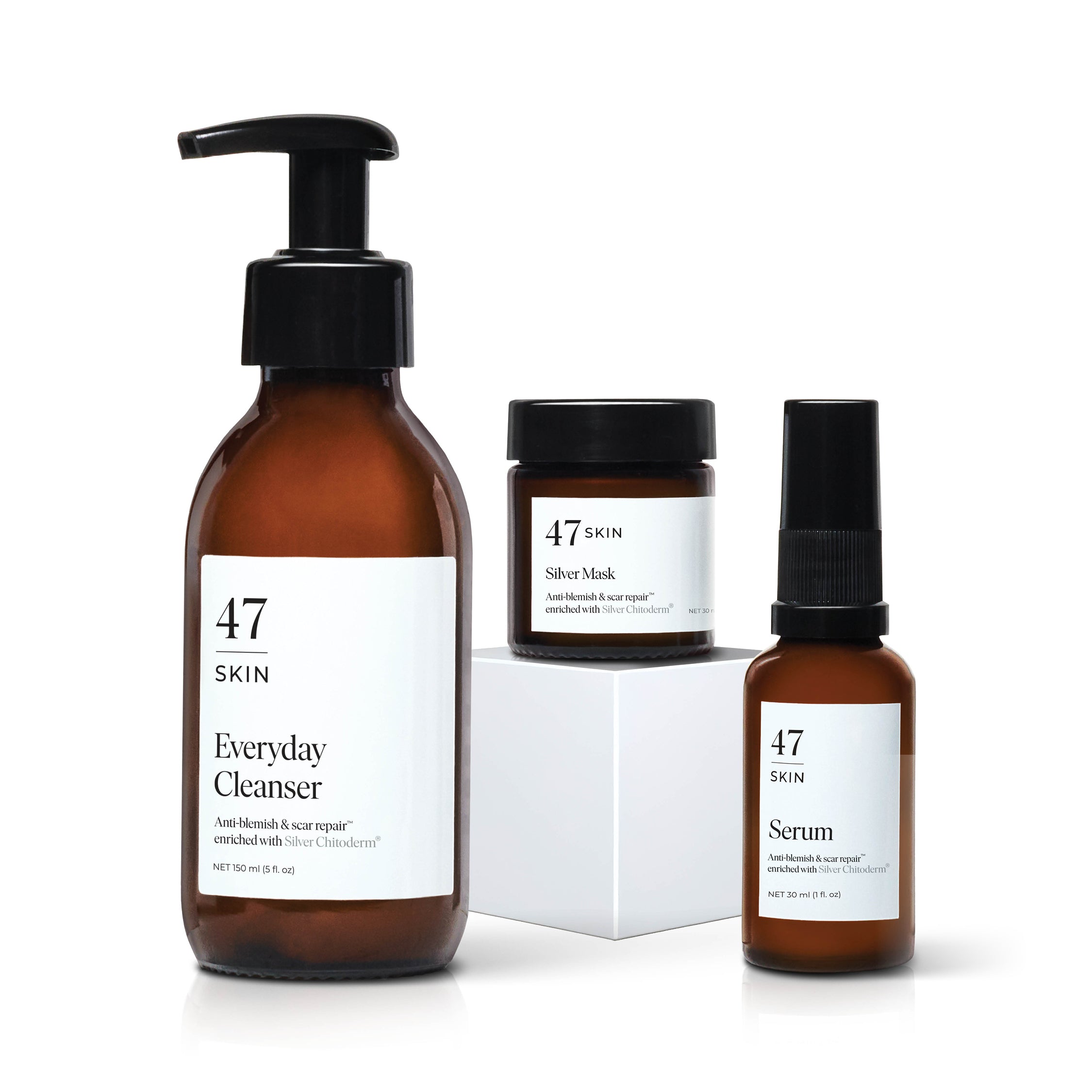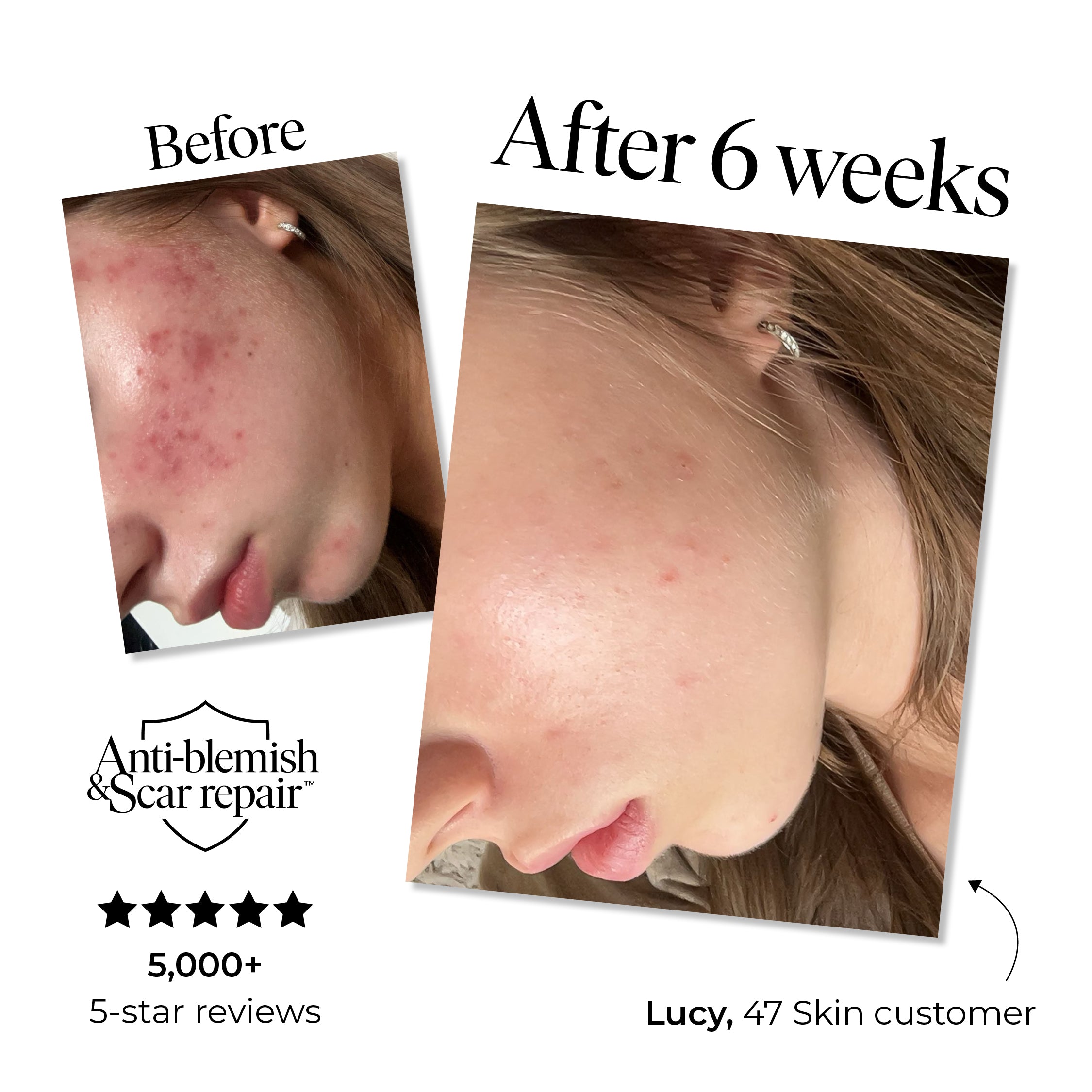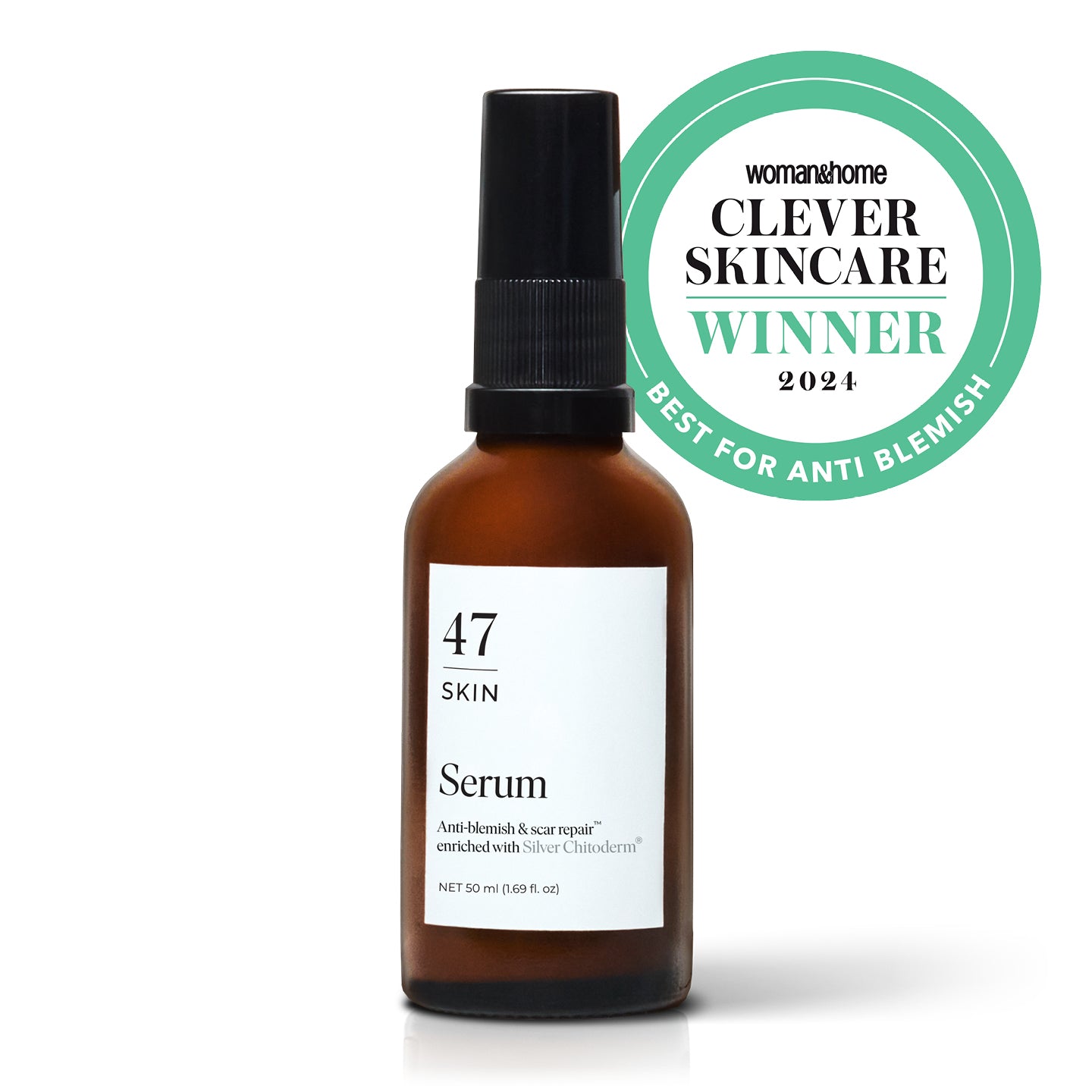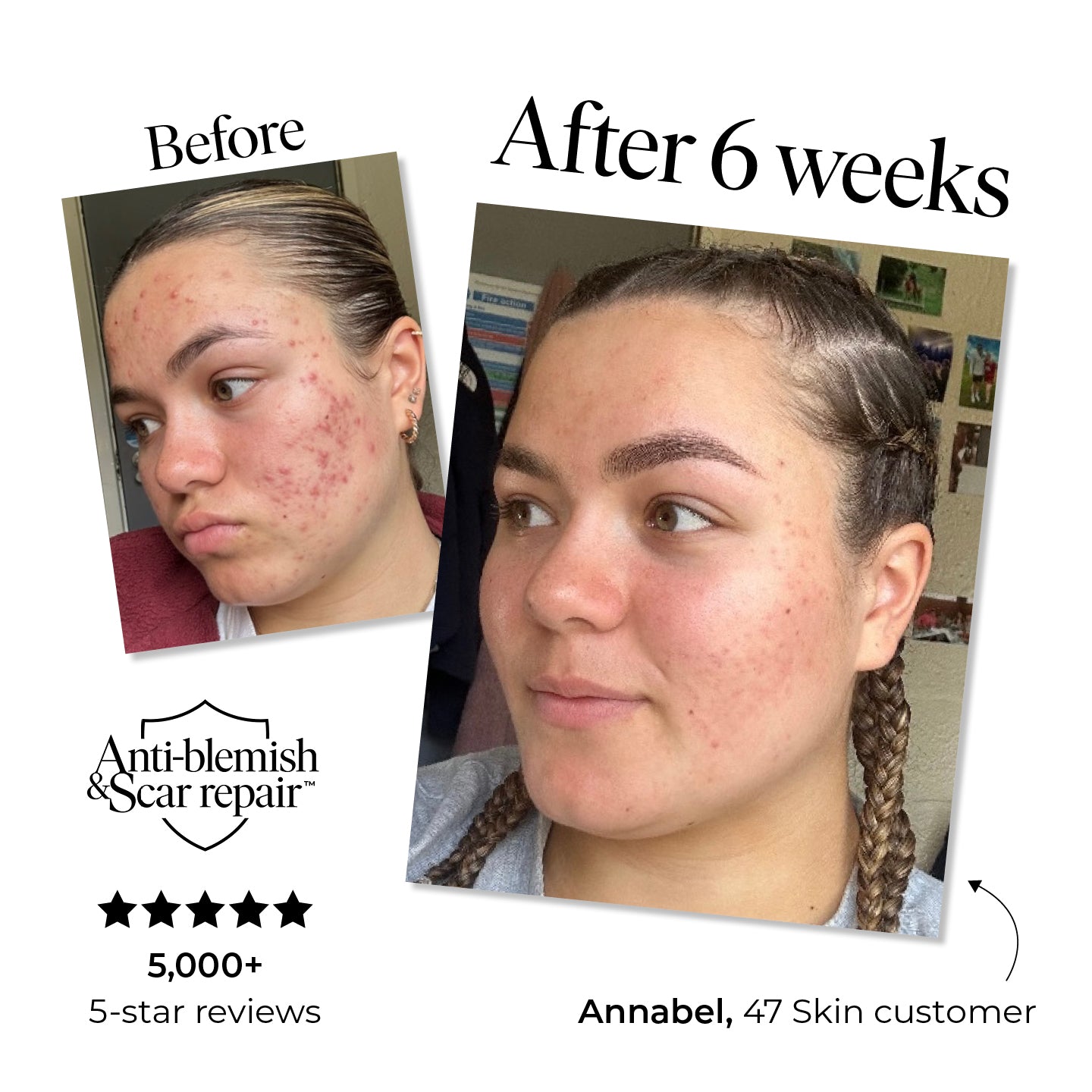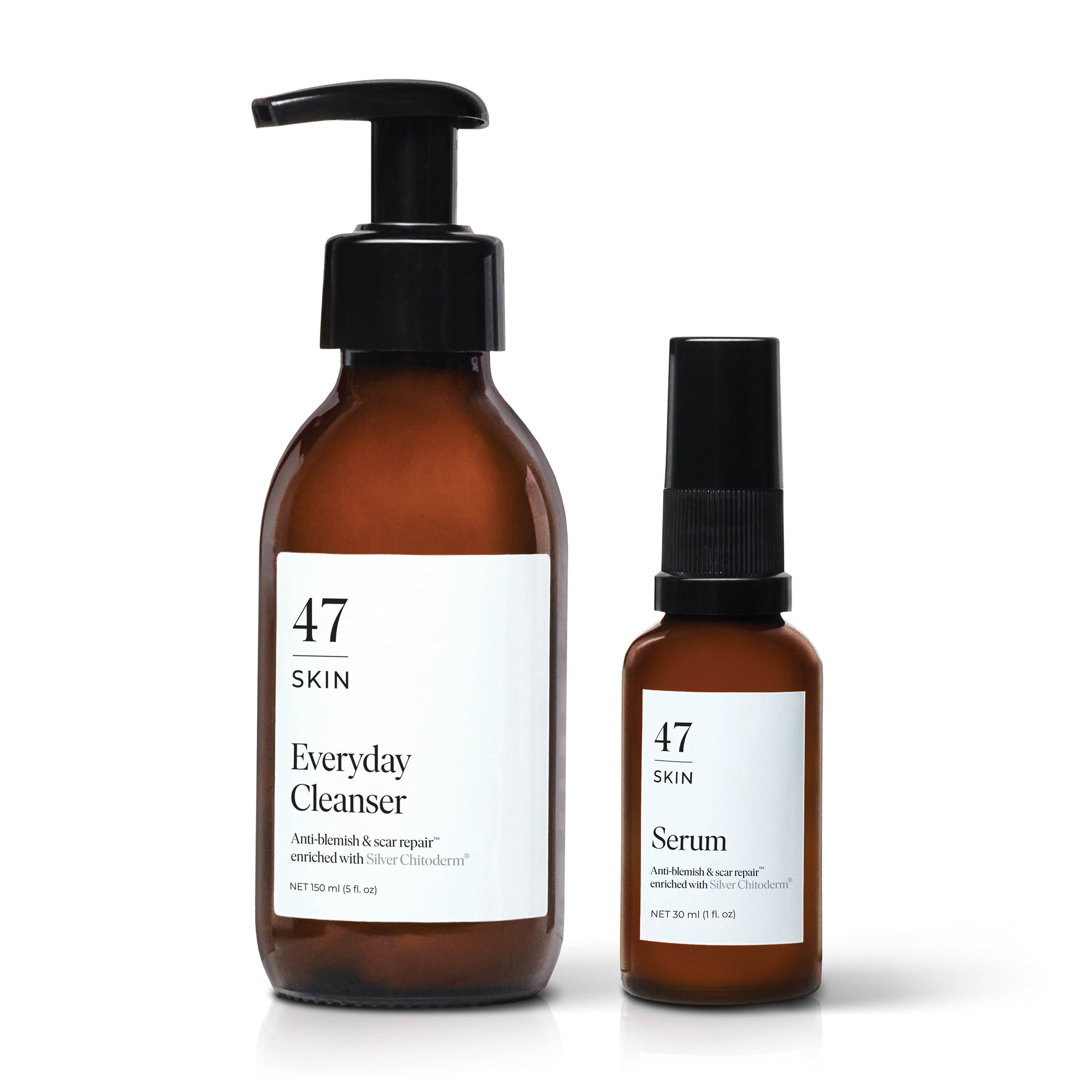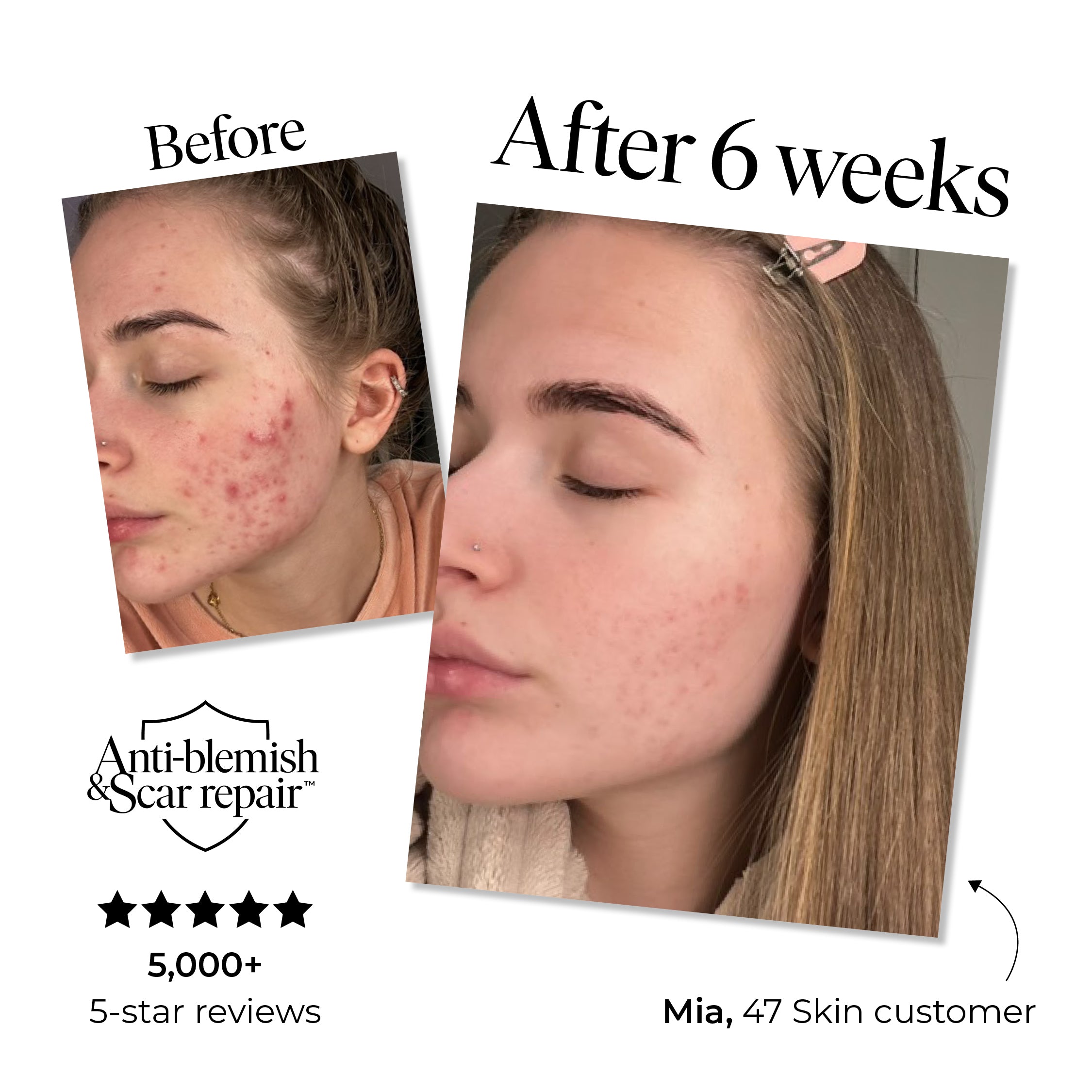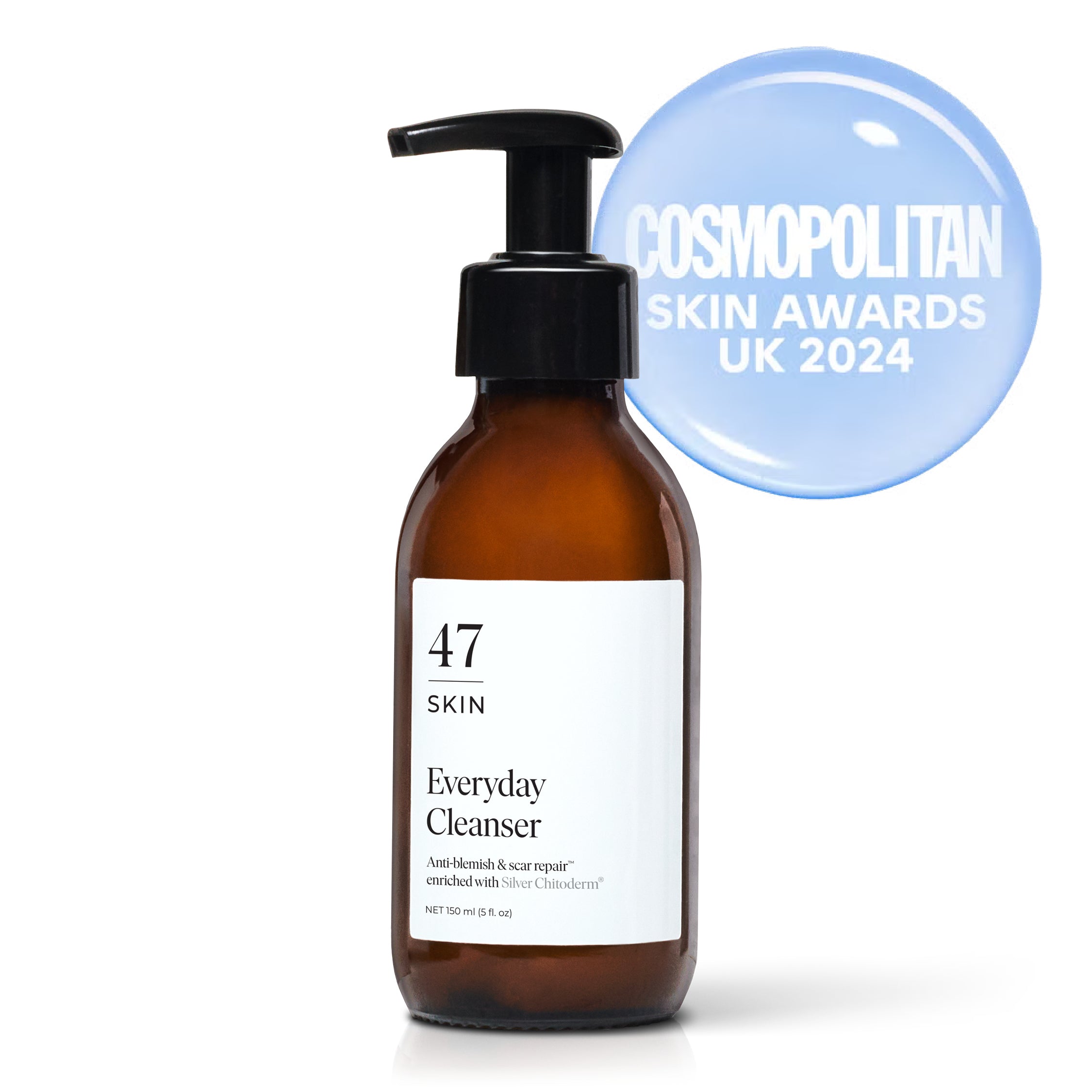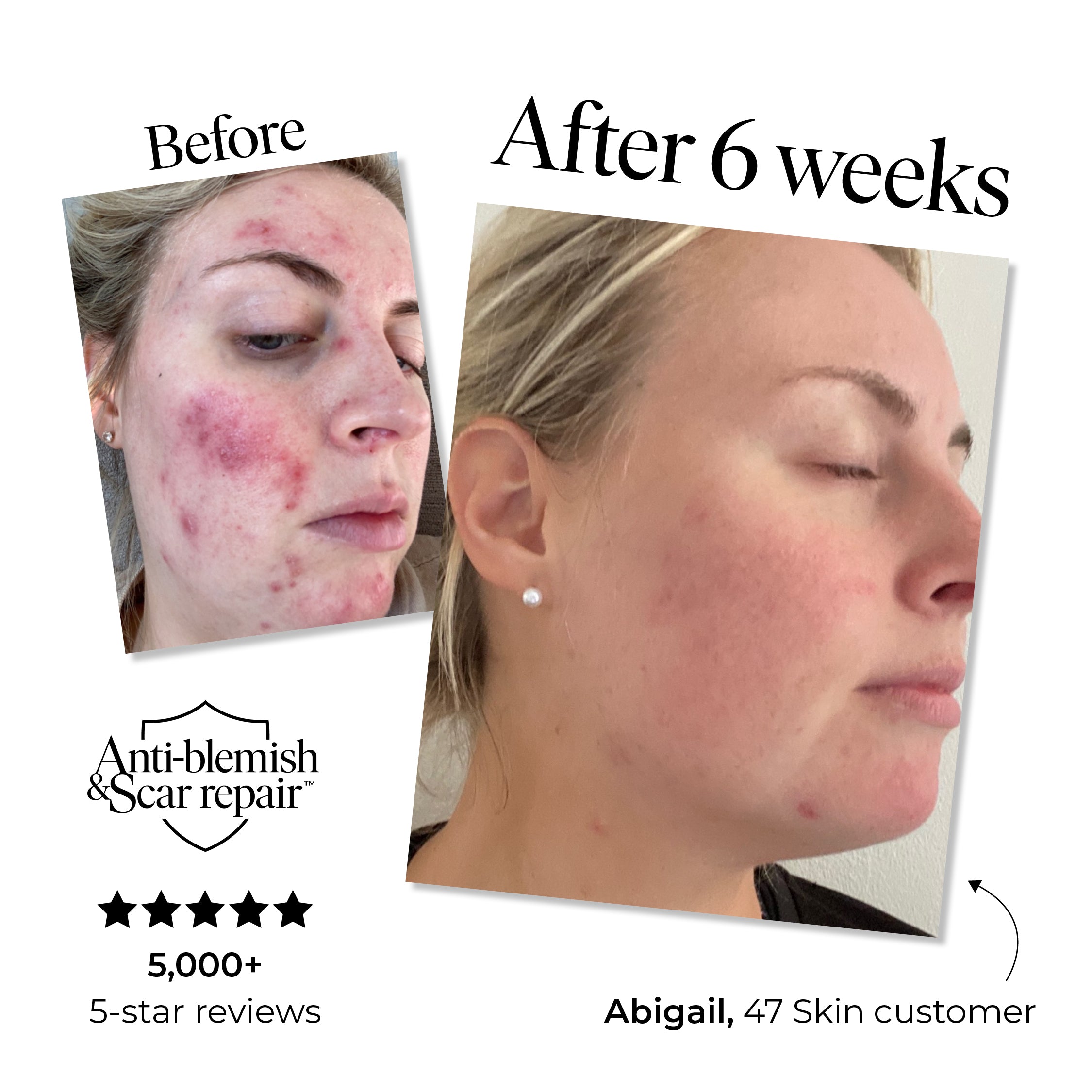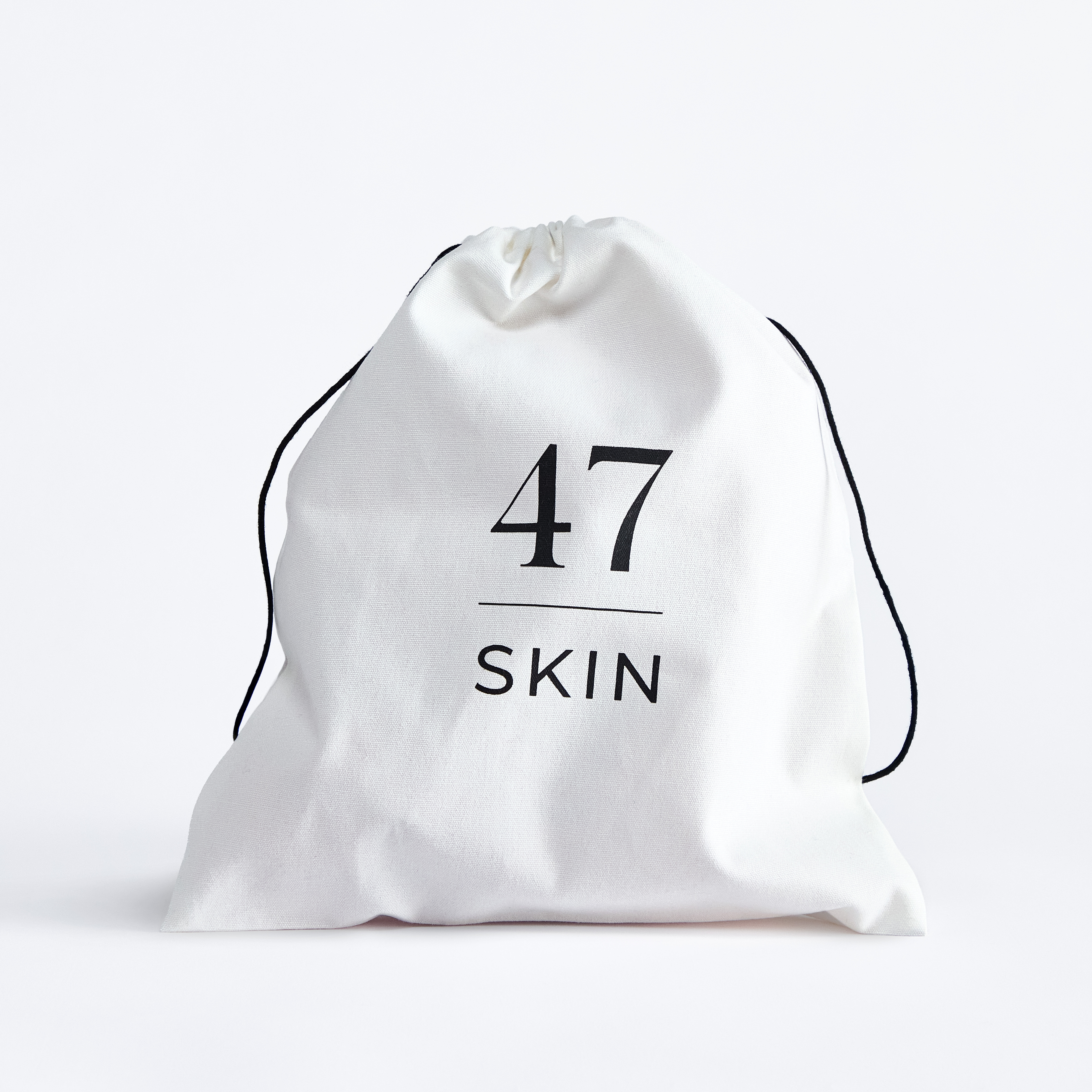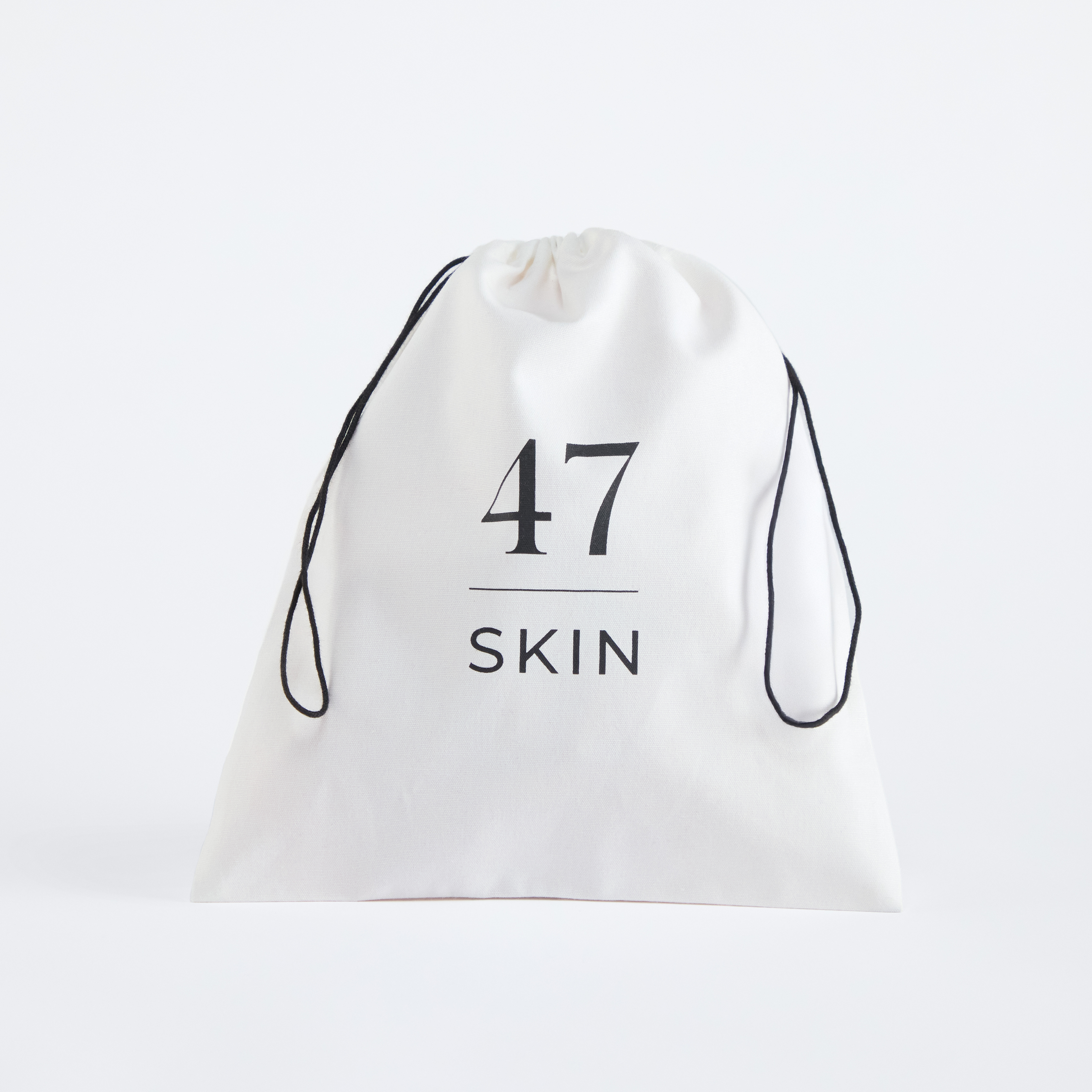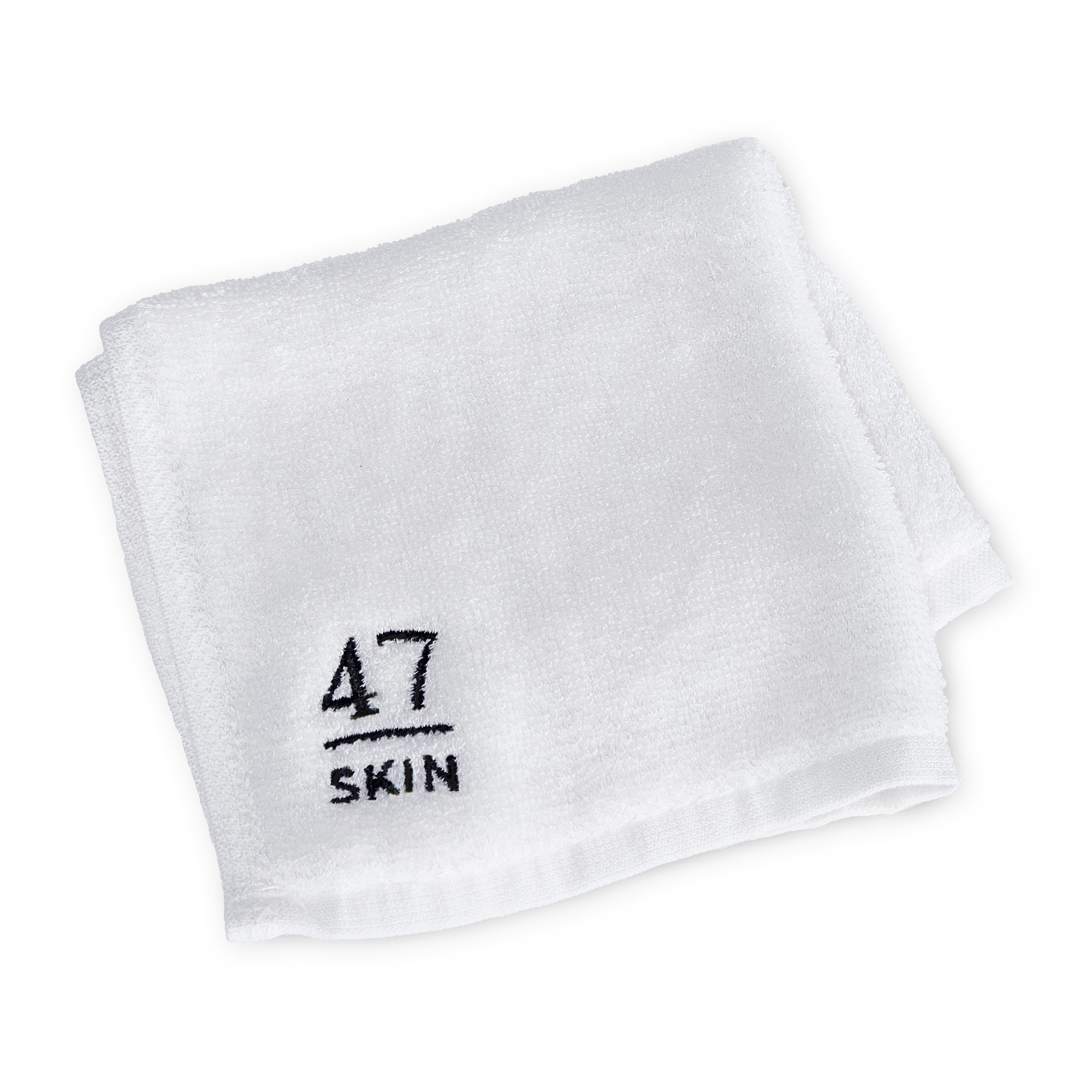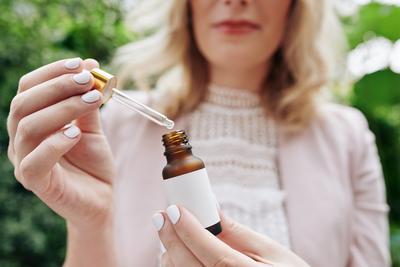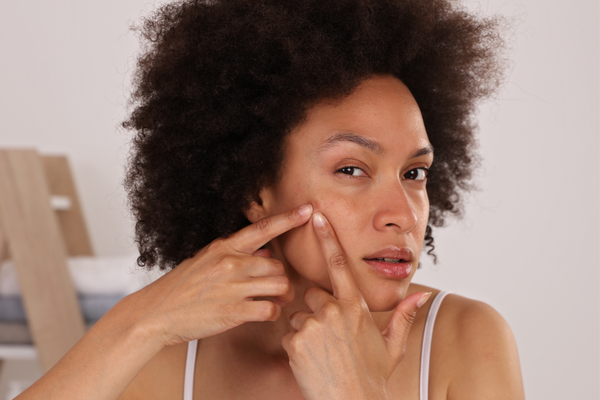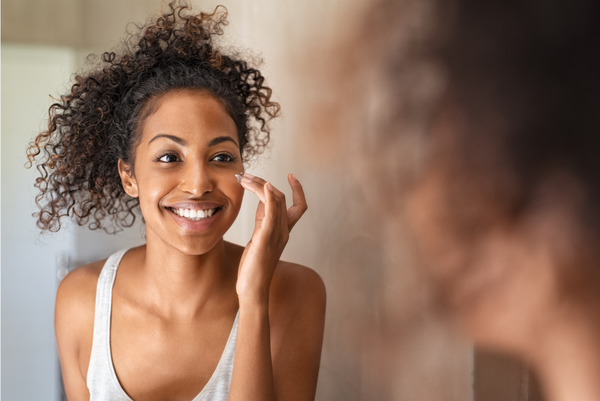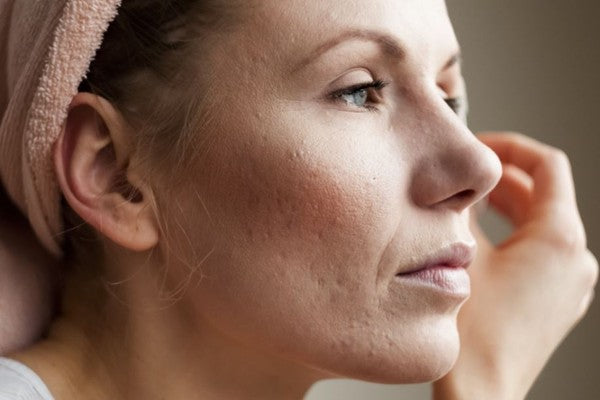
Why is no-one talking about Adult Spots?
Why is no-one talking about Adult Spots?
Adult spots has been on the rise for the last few decades and is at its highest ever level. So why is no one talking about it?
There seems to be ample brands aimed at teenagers, but what about those who are going through blemishes in their 30’s, 40’s, 50’s or 60’s?
This leaves many feeling alone, and can really affect their mental health.
At 47 Skin, we help adults and teens. We want to make you feel supported and represented at every age.
What is adult spots?
Adult spots is defined as persistent spots and blemishes that occur after the age of 25.
This can be a continuation of spots which started in teenage years, or it can occur, even if you never suffered with spots during puberty. This is called ‘adult onset blemishes’ and can happen at any age.
It tends to be mild to moderate in severity and most commonly affects the face, neck, chest or back.
Adult acne affects around 15% of women, but is usually less common in men.
Why are so many adults getting spots?
There are many factors which can affect whether you get spots in your adult years, some of which are out of your control. Here are some of the most common ones:
- You may have higher hormone levels. Hormones cause your glands to produce more sebum, leading to a higher chance of spots. Adult spots in women is often linked to pregnancy, menstrual cycles or the menopause, which can be a very common cause of adult onset acne.
- Genetic factors –if your parents or grandparents suffered with spots, it’s possible that’s a reason why you also suffer with it.
- Applying certain cosmetics to the skin can cause blemishes, especially some moisturisers and foundations. Watch out for products that contain lanolin, petrolatum, vegetable oils, butyl stearate, lauryl alcohol and oleic acid.
- Smoking can cause spots (if you haven’t already found enough reasons to quit, here is another one!)
- Certain medications may cause blemishes, so it’s worth asking your doctor if you’re taking any long-term medications.
- Stress and depression can cause blemishes as this can affect your hormone levels as well.
- Dairy products and certain processed foods can also cause blemishes, for some people. Read our blog on ‘can foods cause spots?’ to find out more about how this could be affecting your skin.
What else is causing a rise in adult spots?
There have been several research studies carried out into finding out why so many people are suffering with adult blemishes, compared to 50 years ago.
Some researchers have said that a ‘Western diet’ which is high in meat, dairy and processed foods, could be causing a surge in hormones and leading to blemishes.
Other studies have also speculated that the rising temperatures of climate change and pollution could be increasing cases of blemishes, although this has not been proven.
Some have commented that the pressures and pace of modern life are causing higher levels of stress that most people probably didn’t experience a few decades ago, so this could also be contributing to adult spots.
How can adult spots be treated?
- A good skin care routine. Keeping your skin clean and hydrated is essential for preventing breakouts, especially for blemish-prone skin. Avoid harsh cleansers which dry out your skin, as this can cause your pores to produce more oil to compensate, leading to more spots. Using a hydrating cleanser which kills bacteria such as our Everyday Cleanser and following with our Anti-blemish & Scar Repair Serum is an ideal way to help prevent spots. The Silver Chitoderm in this serum naturally removes dead skin cells and bacteria, and helps heal existing blemishes, without drying out your skin.
- Antibiotics– There are several different antibiotics that can be prescribed to treat spots. Make an appointment with your GP if you feel like your spots aren’t being controlled from skin care alone.
- Topical treatments – Your doctor can also prescribe you creams such as benzoyl peroxide to control your breakouts. This can be effective for reducing the spots but often dries your skin out as well and can irritate sensitive skin.
- Accutane is a strong drug used to treat and cure blemishes. It’s often used as a last resort due to the risks and side effects involved. You can be prescribed this by your GP in severe cases of acne, or you may need to see a private Dermatologist to get a prescription for more moderate cases.
- Contraceptives– Going on the combined hormone pill (or changing your method of contraception) can be very effective in reducing spots. Make an appointment with your GP to discuss your options.
Check out our most popular content
Join the 47 CLUB for new videos, blogs and discount codes and start feeling great about your skin!
